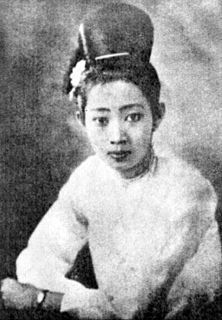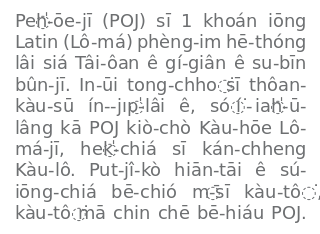
Ne Win was a Burmese politician and military commander who served as Prime Minister of Burma from 1958 to 1960 and 1962 to 1974, and also President of Burma from 1962 to 1981. Ne Win was Burma's dictator during the Socialist Burma period from 1962 to 1988.
The music of Burma has similarities with and is related to many other musical traditions in the region.

The Burma Socialist Programme Party was formed by the Ne Win's military regime that seized power in 1962 and was the sole political party allowed to exist legally in Burma during the period of military rule from 1964 until its demise in the aftermath of the popular uprising of 1988.

University of Yangon, located in Kamayut, Yangon, is the oldest university in Myanmar's modern education system and the best known university in Myanmar. The university offers mainly undergraduate and postgraduate degrees programs in liberal arts, sciences and law. Full-time bachelor's degrees were not offered at the university's main campus after the student protests of 1996. The bachelor's degree was re-offered from 2014 on, to the best students in the country. Today degrees in Political Science are offered to undergraduate students, as well as Postgraduate diplomas in areas such as social work and geology.

Mandalay University is a public liberal arts university located in Mandalay, Myanmar. Formerly an affiliate of Rangoon University, Mandalay University is the second oldest university in the country, and the largest university in Upper Myanmar. The university offers bachelor's, master's and doctorate's degree programs in common liberal arts, sciences and law disciplines.It is also nearby Mandalarthiri Stadium.

The Burmese Way to Socialism refers to the ideology of the socialist government in Burma, from 1962 to 1988, when the 1962 coup d'état was led by Ne Win and the military to remove U Nu from power. More specifically, the Burmese Way to Socialism is an economic treatise written in April 1962 by the Revolutionary Council, shortly after the coup, as a blueprint for economic development, reducing foreign influence in Burma and increasing the role of the military. The military coup led by Ne Win and the Revolutionary Council in 1962 was done under the pretext of economic, religious and political crises in the country, particularly the issue of federalism and the right of Burmese states to secede from the Union.

President San Yu was the General and Commander in Chief of the Tatmadaw and President of Socialist Republic of the Union of Burma from 9 November 1981 to 27 July 1988. San Yu studied medicine in Rangoon when World War II broke out and joined the army to serve as a junior officer while Burma was under Japanese occupation.
Articles related to Myanmar include:
Sein Lwin was a Burmese politician and retired military general in the Myanmar Army. He was served as President of Myanmar for 17 days in 1988, following the resignation of San Yu.

Brigadier General Aung Gyi was a Burmese politician and a member of General Ne Win's 4th Burma Rifles rising to Brigadier General. He was born to a Burmese Chinese family in Paungde, British Burma in 1919. He played a role in the caretaker government of 1958-60 led by Ne Win. Aung Gyi was number two in the Union Revolutionary Council set up after the 1962 coup, serving as vice-chief of staff and Minister of Trade and Industry until he was forced to resign on 8 February 1963 because of disagreements over economic policy with Ba Nyein and Tin Pe. He was once known as Ne Win's heir apparent. In his memoirs, "Saturday's Son", published in 1974, U Nu, then Prime Minister of Myanmar, claimed that his handover of power to the caretaker government was not voluntary but that a group of Army Officers led by Brigadier Aung Gyi and Brigadier Maung Maung threatened him with a "straight military coup" should he refuse to handover power to Ne Win. The suggestion that this coup was mainly led by Brigadier Aung Gyi and Maung Maung was supported Col Hla Maw, former commanding officer of 11th Brigade.

Ludu Daw Amar was a well known and respected leading dissident writer and journalist in Mandalay, Burma. She was married to fellow writer and journalist Ludu U Hla and was the mother of popular writer Nyi Pu Lay. She is best known for her outspoken anti-government views and radical left wing journalism besides her outstanding work on traditional Burmese arts, theatre, dance and music, and several works of translation from English, both fiction and non-fiction.
May Sweet is a Burmese singer and actress, and considered one of the most commercially successful female singers in the history of Burmese pop music. She is most famous for her Burmese covers of Euro disco and American rock and pop songs as well as classic Burmese songs from the pre- and post-war eras.
The 1962 Burmese coup d'état on 2 March 1962 marked the beginning of totalitarian rule and the political dominance of the army in Burma which spanned the course of 26 years. In the coup, the military replaced the civilian AFPFL-government, headed by Prime Minister U Nu, with the Union Revolutionary Council, Chaired by General Ne Win.
Sai Htee Saing was a distinguished Burmese singer and songwriter of Shan descent, which featured prominently throughout his music career. Throughout his career, he recorded two to three Shan language albums and 30 to 40 Burmese language albums. He was especially known for composing country music. Vital composer of Sai Htee Saing's songs is Sai Kham Leik.

Hsipaw, is the principal town of Hsipaw Township in Shan State, Myanmar on the banks of the Duthawadi River. It is 200 km (124 mi) north-east of Mandalay.
Thura Tin Pe was mayor of Yangon, Burma, from 1985 to 1986. He was also a founding member of the Union Revolutionary Council from 2 March 1962 until his resignation in 1970. Tin Pe was married to Tan Yu Sai's sister, Thein Saing.
The Union Election Commission is the national level electoral commission of Myanmar (Burma), responsible for organising and overseeing elections in Burma, as well as vetting parliamentary candidates and political parties.
The Union Revolutionary Council was the supreme governing body of Burma from 2 March 1962, following the overthrow of U Nu's civilian government, to 3 March 1974, with the promulgation of the 1974 Constitution of Burma and transfer of power to the People's Assembly, the country's new unicameral legislature.
Sai Kham LeikBurmese: စိုင်းခမ်းလိတ်), also known as Louis Kham is a successful and prolific Burmese songwriter. Said to be a physician by training he is an ethnic Shan songwriter and has written more than 500 songs in Burmese, 200 in Shan and about 35 in English. His father, Kham Ka, was a noted poet and a former minister of Hsenwi Palace. He was born on 27 April 1949 in Hsenwi. He has three siblings. He married Dr. Nwe Nwe Tin in 1971 and has four children.. He taught anatomy at the University of Medicine, Mandalay from 1990 to. He is also a persistence promoter of Shan culture. He is vital composer of late Sai Htee Saing, a well-known Shan singer of Myanmar. They met in 1969 and later they founded a music band which became a successful The Wild Ones. "Panglong Agreement" is his most cerebrated song among Shan since 1971. It was sung by Sai Hsai Mao and recorded in Thailand in 1974 with the financial support of a renounced Wa leader.
Tin Hla was a Lieutenant General in the Burmese army. He was also Deputy Prime Minister and Military Affairs Minister until November 2001.










